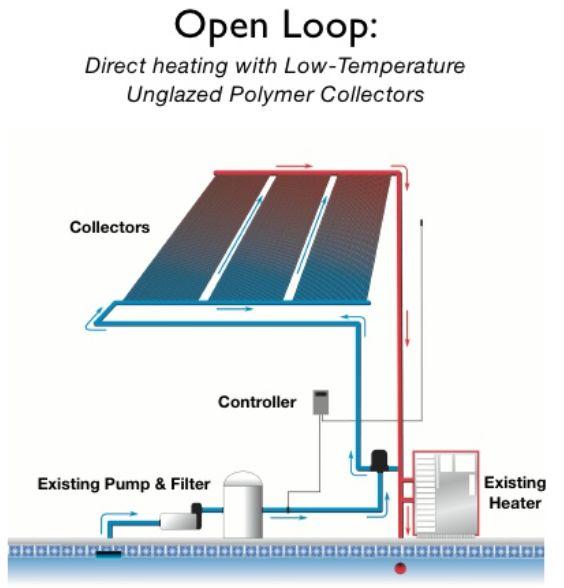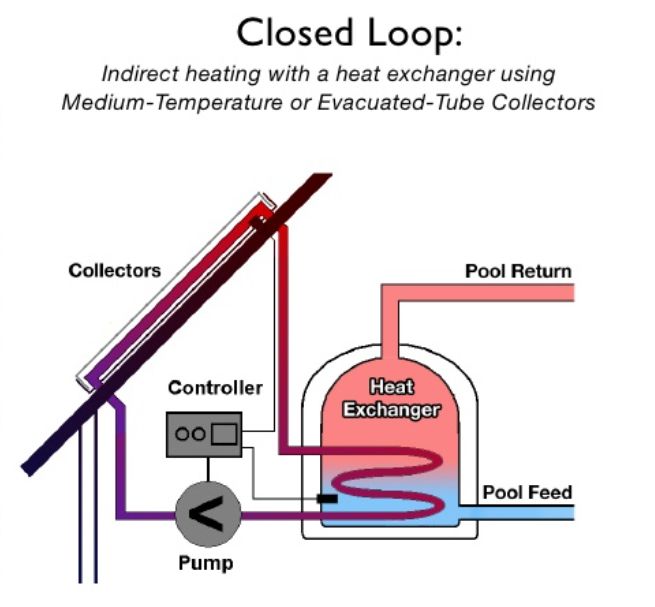What are the differences between the two systems and how do I know which will work best for me?

An open loop solar pool system heats the water directly from your pool being added to the current loop system. During normal pool operation the water will circulate through the solar collectors in the existing filter and heating loop. When energy is being demanded to heat the pool, the water will flow into the filter and existing heater, then top up what is needed to heat the water to your desired set temperature. In turn, if the solar is supplying the needed temperature the now secondary backup heater will not have to be used. When your pool is at the required temp the system simply bypasses the solar loop to prevent overheating.









